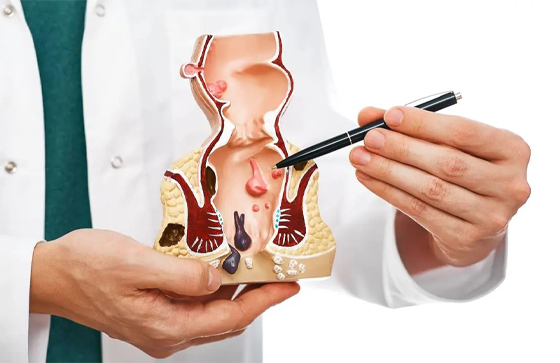- Emergency Ambulance Services
- 8606811111
- 0471-4077777, 0471-7177888
- gro@sutpattom.com
Understanding Fistula, Piles, and Anal Fissures: Causes, Effects, and Treatment
Fistula, piles (hemorrhoids), and anal fissures are common conditions that can affect the anal area.
What are Fistula, Piles, and Anal Fissures?
An anal fistula is an abnormal connection or passageway that forms between two organs or between an organ and the skin, typically between the anal canal and the skin near the anus. Piles or Hemorrhoids are swollen and inflamed veins in the rectum and anus, which can be internal or external. An anal fissure is a small tear or cut in the lining of the anus, often caused by passing hard or large stools, chronic constipation, or other factors.
Effects of Fistula, Piles, and Anal Fissures
Anal fistulas can cause pain, swelling, discharge of pus or blood, itching, and discomfort during bowel movements. If left untreated, they can lead to recurrent infections and complications.
Hemorrhoids can result in pain, itching, bleeding during bowel movements, swelling around the anus, and discomfort. Straining during bowel movements and chronic constipation are common triggers for piles.
Anal fissures cause pain and bleeding during bowel movements, especially when passing hard stools. They can also lead to itching, discomfort, and inflammation in the anal area.
Treatment Methods
Treatment for Fistula
- Surgery: Surgical procedures like fistulotomy (cutting open the fistula tract), seton placement (inserting a draining thread), or fistula plug insertion may be recommended.
- Lifestyle Changes: Proper hygiene, high-fiber diet, and avoiding straining during bowel movements can help prevent recurrence.
Treatment for Piles
- Lifestyle Modifications: Fiber-rich diet, hydration, and avoiding prolonged sitting can prevent constipation and reduce strain on the rectal area.
- Minimally Invasive Procedures: Rubber band ligation, sclerotherapy, and infrared coagulation are options for treating piles.
- Surgery: Hemorrhoidectomy may be necessary in severe cases.
Treatment for Anal Fissure
- Dietary Changes: Increasing fibre intake and staying hydrated to soften stools and prevent constipation.
- Surgical Intervention: In some cases, surgery may be needed to repair chronic or severe anal fissures.
Fistula, piles, and anal fissures are conditions that can cause pain and discomfort in the anal region. Seeking medical advice for accurate diagnosis and appropriate treatment is crucial for managing these conditions effectively and improving quality of life. Lifestyle changes, medication, and surgical interventions can play a significant role in treating and preventing recurrence of these anal disorders.
Dr. Koshy Mathew Panicker
Consultant General Surgery
SUT Hospital, Pattom









